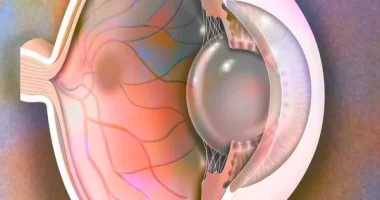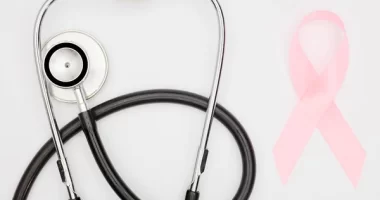Polycystic ovary syndrome (PCOS) is a hormonal disorder that affects women of child-bearing age. It can lead to dire consequences, including obesity. Here are some diet tips to manage the disease.
Polycystic ovary syndrome (PCOS) is a hormonal disorder that may occur in women of child-bearing age. One in every five women in India is diagnosed with it. Women who suffer from PCOS produce more of the male hormone, androgen. This induces hair growth on the face as well as elsewhere on the body, but hair falls from the head, resulting in baldness.
Such women also experience irregular or prolonged menstrual periods. The ovaries may develop numerous small collections of fluid (follicles) and fail to regularly release eggs. This results in infertility issues. More serious long-term health implications include diabetes, hypertension and cardiac diseases. One of the classic symptoms of PCOS is also obesity, which this article addresses. Since obesity is directly linked to insulin resistance and the risk of type-2 diabetes, it becomes significant to lose weight.
Dietary Tips To Help Control Weight Gain If You Have PCOS
Your diet is paramount, and you should know exactly what, how much, and when to eat; and what to avoid. Below we present five dietary tips to help control weight gain if you suffer from PCOS.
Also read: Bald men are more at risk of getting severe coronavirus, studies show
Reduce And Choose Your Carbohydrate Intake Wisely
The amount and quality of carbs you consume affects your insulin directly. While monitoring carb intake is essential, be more practical rather than completely trying to cut out carbs from your diet.
Eat complex carbs. These are non-inflammatory as well as high in fibre. The fibre works towards nurturing the quality and quantity of gut bacteria that assist in weight loss. A few good sources of complex carbs include whole grains, millets, sweet potato, quinoa, seasonal vegetables.
Eat ‘Good’ Fats
Monounsaturated and polyunsaturated fats improve cholesterol and help reduce inflammation. Since the sex hormones are made up of cholesterol, eating good fats help reset and stabilize these hormones which go haywire in PCOS.
Such higher quality fats also help in the absorption of fat-soluble vitamins, thus avoiding nutritional deficiencies and promoting overall health. Another big plus with good fats is that they help you feel satiated, and keep your food cravings in check. A few sources of such good fats include nuts, seeds, coconut, ghee and the avocado fruit.
Increase Your Protein Intake
Protein promotes lean muscle mass. The more lean muscle mass your body has higher the metabolism. It also keeps blood sugar at a healthy level and makes you feel satiated. Thus eating enough protein daily can impact your weight-loss program positively by avoiding food cravings, and increasing your fat burning capacity.
So plan all your meals in a way that include a sufficient amount of protein. Some good sources are lentils, boiled egg whites, cottage cheese, fatty fish such as salmon and tuna, and chicken breasts.
Include Fermented Foods
Gut bacteria are very significant in metabolism and weight control. A ton of medical research states that an unhealthy gut microbiome can cause insulin resistance, hyperandrogenism, chronic inflammation and metabolic syndrome (obesity, diabetes) and may contribute to the development of PCOS.
So it becomes important to include food sources that lead to a higher level of ‘healthy’ gut bacteria. Fermented foods and probiotics such as homemade curd, idli, dhokla, kimchi, kanji, and homemade pickles are a good choice. These foods help release good bacteria inside your gut.
Also read: Chia Seeds: Top benefits, side effects, and ways to have them
Stay Well Hydrated
Drinking enough water throughout the day is important if you suffer from PCOS. That’s because a few of the disease’s side effects include frequent urination, dehydration, and fatigue. Dehydration can lead to bloating, cramps, headaches and sluggishness.
Water is also crucial in the transportation of nutrients, and detoxification. Moreover, thirst may be mentally misunderstood as hunger, and one ends up consuming unhealthy calories.
So, drink enough water daily, and pay attention to the colour of your urine. Healthy urine is pale yellow in colour; excessively dark coloured urine indicates that you are dehydrated.
Don’t miss: Prostate cancer: Eight urine signs which could be early indicators of your risk
Summing Up
Bringing down excess weight resulting from PCOS is crucial at many levels. It would help ward off other life-threatening diseases such as diabetes and cardiac conditions. Staying hydrated and eating a well-balanced diet, which includes complex carbs, good fats, and lean sources of protein can help you with your weight management, and thus with PCOS.
Give lifestyle a chance, use the magic of food, exercise and fixed routine as a therapy to deal with your issues naturally. This holistic and sustainable approach can help reverse PCOS naturally to a large extent.
This post first appeared on The Health Site







